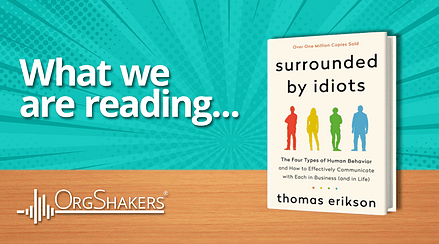Menu

Interview Transparency: Should Employers Share Questions in Advance?
In today’s evolving talent landscape, HR professionals are increasingly re-evaluating traditional hiring practices to foster fairness, inclusivity, and effectiveness.
One such practice under scrutiny is whether to provide interview questions to candidates in advance. While this approach may seem unconventional, it’s gaining traction as organizations strive to create more equitable and insightful recruitment experiences.
The Case for Transparency
- Reducing Candidate Anxiety Interviews are inherently stressful. Sharing questions ahead of time can ease this pressure, allowing candidates to engage more authentically. A relaxed candidate is more likely to demonstrate their true personality and capabilities – qualities that are often masked by nerves in high-pressure settings.
- Supporting Inclusive Hiring Providing questions in advance can be a game-changer for neurodivergent candidates or those with anxiety disorders. Traditional interviews often disadvantage individuals who struggle with spontaneous communication, despite having the right skills. This practice levels the playing field and aligns with inclusive hiring goals.
- Encouraging Deeper Preparation When candidates know what to expect, they can prepare more thoroughly. This leads to richer, more thoughtful responses that reflect a deeper understanding of the role and the organization. It also allows candidates to align their experiences with the job requirements more effectively.
- Enhancing Consistency and Reducing Bias Standardizing interview questions and sharing them with all candidates promotes fairness and consistency. It minimizes the influence of unconscious bias and ensures that every candidate is evaluated against the same criteria.
- Exploring Value Alignment Pre-set questions can go beyond skills and experience to explore alignment with company values. This helps hiring managers assess cultural fit and long-term potential, not just technical proficiency.
The Challenges to Consider
- Risk of Over-Preparation One concern is that candidates may rehearse overly polished responses that don’t reflect their real-time thinking or problem-solving abilities. This can make it harder to assess authenticity and adaptability.
- Potential for Misrepresentation With access to external help—or even AI-generated responses—candidates might present answers that don’t accurately reflect their own knowledge or experience. This could lead to mismatches post-hire.
- Loss of Spontaneity Interviews are often used to assess how candidates respond under pressure. Providing questions in advance may dilute this aspect, especially in roles that require quick thinking and adaptability.
- Risk of Rigidity A fully scripted interview can feel impersonal and may limit candidates from showcasing unique strengths or experiences that fall outside the predefined questions.
- Stale Content If interview questions aren’t regularly updated, candidates may find generic answers online, turning the process into a mechanical exercise rather than a meaningful conversation.
A Balanced Approach: The Hybrid Model
To harness the benefits while mitigating the drawbacks, many HR leaders are adopting a hybrid approach:
- Preview, Not Full Disclosure: Share themes or sample questions rather than the exact list. This reduces anxiety while preserving the element of spontaneity.
- Structured + Adaptive: Begin with pre-shared questions to establish comfort and consistency, then follow up with tailored or situational questions to assess adaptability and critical thinking.
- Real-Time Tasks: Incorporate live problem-solving exercises or behavioral scenarios to evaluate how candidates think on their feet.
- Regular Review: Keep interview content fresh and relevant to avoid predictability and ensure alignment with evolving business needs.
Final Thoughts
Ultimately, the goal of an interview isn’t to “catch out” candidates – it’s to understand who they are, what they bring to the table, and how they align with your organization’s mission and culture.
By thoughtfully reimagining the interview process, HR professionals can create a more inclusive, insightful, and effective hiring experience that benefits both candidates and companies alike.



